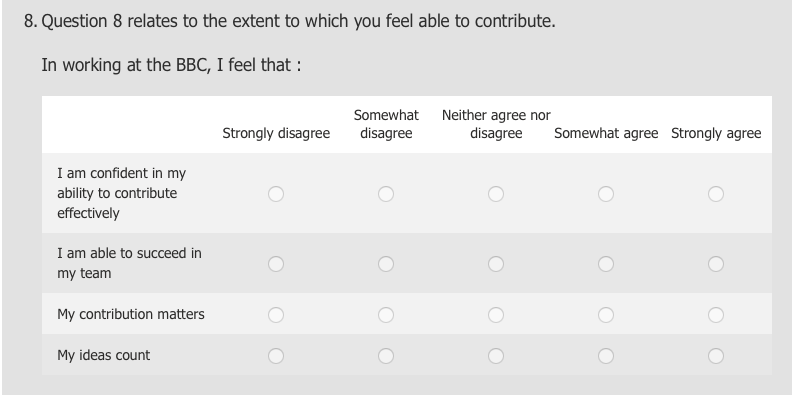Using the Human Values framework to support employee development
It’s often perceived that in the workplace we must put certain aspects of our personalities and needs to the sidelines and knuckle down to hard graft. It can also be the case that we disregard our own wellbeing (or we allow this behaviour to go unchallenged in colleagues) in the pursuit of workplace goals. This is a harmful fallacy. People at work should feel supported to satisfy rather than distort their needs and values. We believe that applying the human values framework to workplace culture can help with recognising where and how people’s individual needs are being fulfilled, which in turn can result in creating a development plan that is personalised towards personal values, wellbeing and growth; which are important aspects for people to thrive at work.

The human values framework is rooted in research about psychological needs and is made up of 14 human values, which are things we know are important for people to feel valued, happy and effective. We have been spending time applying the framework to the design process, turning these values into language and tools used by practitioners to create digital products that keep audiences’ best interests in mind.
We now turn our focus on applying the framework to workplace culture to understand how attuned business practices are towards their employee personal values. In doing so, we hope to create tools that support people’s working needs, optimise for wellbeing and put inclusivity at the heart of business practice. We are particularly interested in career development, interview processes, stakeholder management, and working as part of a team, where we are building a series of case studies from different contexts.
The appraisal process (also called a development review) is an important aspect for work fulfilment, and is a function that affects the majority of employees in both positive and negative ways. Some people see this as a chance to reflect and plan, others as nothing more than a box ticking exercise. We are interested in exploring whether introducing the human values framework into the mix will help people align their developmental goals more towards their personal values.
One intention for the framework is to help people to learn their own value priorities, and so injecting a reflection point would help to think about what is personally important and how aligned their values are to their work.
To help people reflect on their own value priorities, we developed a self-assessment psychometric questionnaire that asks people to think about each of the 14 values in detail by reflecting on their current work life. This psychometric questionnaire has 40 items in total, which asks people to agree or disagree about statements that relate to the underlying psychology of human values. For example, items ask to what extent a person feels respected, their ability to contribute, or freely express themselves. See figure 1 for a snapshot of a selection of psychometric items relating to the human value being safe and well, and figure 2

The standard practice (i.e. non self-assessment intervention) for this line manager would be to have a conversation about the good and bad reflection of the previous 6-12 months. We explored the benefit of using the self-assessment, completed ahead of the conversation between line manager and mentee. With consent, the line manager reviewed the forms to check for priority areas, e.g. items people had rated especially high, to review things going well, especially low or on the fence (neither agree nor disagree) which could indicate feeling unfulfilled.
We learned that giving employees the time to consider all aspects of the questionnaire helped both line managers and mentees to identify human values that were personally important, areas where they flourished, and developmental priorities. This was driven by personal goals, needs, and values. For example, one of the reports mentioned that ‘It made me think beyond my work life, and immediate work goals, into other fundamental aspects of my life and what’s important to me as a bigger picture.’

We also learned from the manager about the type of conversations it yielded. The rich information about each mentee provided an alternative structure to the meeting that was more in-depth than the ‘’good and bad’’ parts of the last 6-12 months. By exploring human values, it resulted in a bespoke tailored approach for each of the six reports. The line manager described ‘...being able to have conversations around values helped me really get to the heart of what was important to each individual my team in quite a profound way. If you’re prepared to have very open and honest conversations with the people you manage, starting with values is incredibly useful.’
Using research that underpins human values into what drives a particular value and how people meet this in other aspects of their lives, allows the line manager to ask open questions and probe those areas. The self-assessment enables an expansion of emotional vocabulary to be investigated, which benefits both employees and managers alike. Where the former are able to open up in a way that considers their true needs; the latter was able to probe these areas and understand those needs. This builds rapport and trust between both parties and helps with constructing effective mentoring or coaching relationships. These conversations have the opportunity to create more purposeful development goals for a person and as such create a positive impact on their experience at work.
